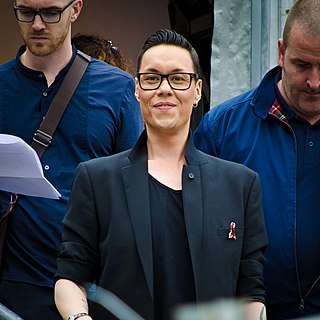A Quote by Timothy Leary
To describe externals, you become a scientist. To describe experience, you become an artist.
Quote Topics
Related Quotes
The epithet beautiful is used by surgeons to describe operations which their patients describe as ghastly, by physicists to describe methods of measurement which leave sentimentalists cold, by lawyers to describe cases which ruin all the parties to them, and by lovers to describe the objects of their infatuation, however unattractive they may appear to the unaffected spectators.
To describe love-making is immoral and immodest; you know it is. To describe it as it really is, or would appear to you and me as lookers-on, would be to describe the most dreary farce, to chronicle the most tautological twaddle. To take note of sighs, hand-squeezes, looks at the moon, and so forth--does this business become our dignity as historians? Come away from those foolish young people--they don't want us; and dreary as their farce is, and tautological as their twaddle, you may be sure it amuses them, and that they are happy enough without us.
I would not describe myself as a political writer except in the sense that the personal is political, which is something that I do strongly believe. And in that sense American Gods is a very personal novel and a political novel. I was trying to describe the experience of coming to America as an immigrant, the experience of watching the way that America tends to eat other cultures.




































